Shows
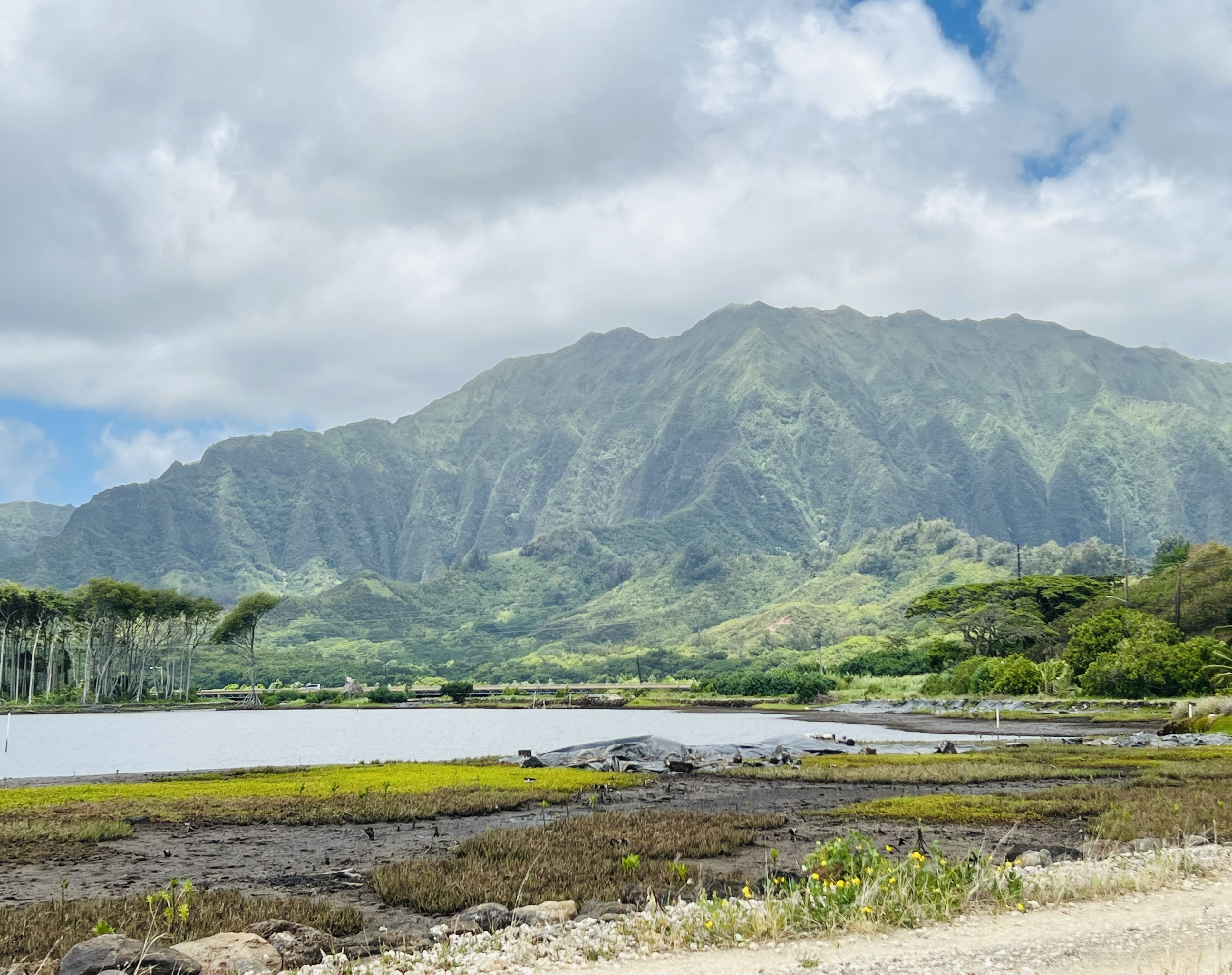
Cultures of Energy229 - Abundance (feat. Candace Fujikane)Cymene and Dominic arrive in Italy just in time for the naming of another Chicagoan as pope and discover the wonders of street to table cuisine. Then (15:41) we welcome the amazing Candace Fujikane to the podcast to talk about her book Mapping Abundance for a Planetary Future: Kanaka Maoli and Critical Settler Cartographies in Hawai'i (Duke University Press, 2021). We start with the Hawaiian conception of abundance and why capitalism fears it. From there we move to mapping as narrative, how old maps can aid struggles for environmental justice and regeneration and the friction between laws of private property and...
2025-05-101h 03
Pearl Dive PodcastLeon Siu declares Hawaiian Independence (2/2)Here is part two of the Pearl Cast with H.E. Leon Siu, Minister of Foreign Affairs for the Hawaiian Kingdom. In this part of our interview we discuss the ethics of visiting Hawai’i, how Mr. Siu got involved with the Hawaiian Independence movement, and his work with other Pacific Island Nations.Watch this video, “Holy Spirit Fiya,” from Urbana 2015 for a live example of what happens when indigenous people’s gather to worship the Lord together and in their own languages. The song is by Leon Siu’s pastor, Kahu Moani Ninod-Sitch and sung in languages...
2025-02-1129 min
Pearl Dive PodcastLeon Siu declares Hawaiian Independence (1/2)Welcome to the inaugural episode of Pearl Dive, a podcast from Fuller Seminary’s Asian American Church History Institute (AACHI). If you have ever wondered about how your ethnic heritage meets faith or about the history of Hawaii, this episode is for you. In the first two episodes of Pearl Dive, Fiel Sahir talks to Leon Siu, Foreign Minister for the Hawaiian Kingdom, about Christianity in Hawaii. Mr. Siu discusses the indigenous Christian spirituality in the first episode and the Independence movement in the second. The interview was recorded on October 1, 2023. This season’s po...
2025-02-0428 min
The Deep DiveEpisode 174: Essential Work, Disposable Workers w/ Mostafa HenawayPhilip spends time with activist/community organizer and author Mostafa Henaway. They discuss his book Essential Work, Disposable Workers and how the precarity of late stage capitalism effects labor and the future of work.
The Drop – The segment of the show where Philip and his guest share tasty morsels of intellectual goodness and creative musings.
Philip’s Drop:
Mapping Abundance for a Planetary Future – Candace Fujikane
https://podcasts.apple.com/us/podcast/episode-76-mapping-abundance-for-a-planetary-future/id1484558993?i=1000534789433
Mostafa’s Drop:
Border and Rule: Global Migration, Capitalism, and the Rise of Racist N...
2023-12-1458 min
Tomorrow is the Problem: A Podcast by Knight Foundation Art + Research Center at the Institute of Contemporary Art, Miami04: Rising TidesWith thousands of years of experience in land stewardship, indigenous communities—more specifically, their everyday relationship with the ocean as a site of knowing—provide a radical alternative to the dominant cultural response to the ongoing climate crisis. For the final episode of our first season, University of Hawai'i professor Candace Fujikane and Native American scholar Dina Gilio-Whitaker explore how some groups are turning to indigenous traditions bound to the sea to help overcome cultural anxieties about sea-level rise and climate change.
2022-07-1833 min
Public Anthropologist PodcastEconomies of scarcity and abundanceIn the 4th episode of PUAN podcast, co-host Saumya Pandey interviews a professor of English, Candace Fujikane, on how ideas of abundance and scarcity are forged under capitalism. Professor Fujikane’s research uses cartography as a methodology to map Kanaka Maoli’s knowledge and relation of abundance with lands, seas and skies. In doing so, Fujikane’s work raises fundamental concern about the capitalist economies of scarcity, which have devastating consequences for the planet.
2022-06-2027 min
Environment, Climate Change, Renewable Energy, Regeneration, Sustainability, Nature, Politics, Circular Economy - One Planet Podcast 2021-2022(Highlights) Candace Fujikane · Author of "Mapping Abundance for a Planetary Future" · Professor of English · University of Hawaiʻi at Manoa“The struggle for a planetary future calls for a profound epistemological shift. Indigenous ancestral knowledges are now providing a foundation for our work against climate change, one based on what I refer to as Indigenous economies of abundance—as opposed to capitalist economies of scarcity. Rather than seeing climate change as apocalyptic, we can see that climate change is bringing about the demise of capital, making way for Indigenous lifeways that center familial relationships with the earth and elemental forms. Kānaka Maoli are restoring the worlds where their attunement to climatic change and their capacity for kilo adaptation, regen...
2022-05-1200 min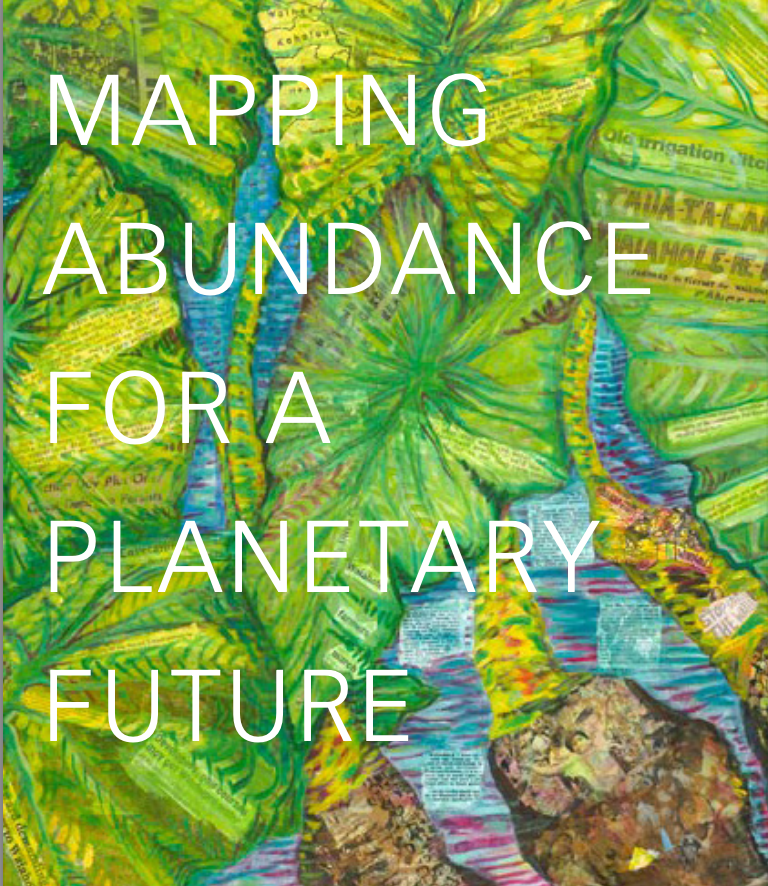
Sustainability, Climate Change, Renewable Energy, Politics, Activism, Biodiversity, Carbon Footprint, Wildlife, Regenerative Agriculture, Circular Economy, Extinction, Net-Zero · One Planet Podcast(Highlights) Candace Fujikane · Author of "Mapping Abundance for a Planetary Future”“The struggle for a planetary future calls for a profound epistemological shift. Indigenous ancestral knowledges are now providing a foundation for our work against climate change, one based on what I refer to as Indigenous economies of abundance—as opposed to capitalist economies of scarcity. Rather than seeing climate change as apocalyptic, we can see that climate change is bringing about the demise of capital, making way for Indigenous lifeways that center familial relationships with the earth and elemental forms. Kānaka Maoli are restoring the worlds where their attunement to climatic change and their capacity for kilo adaptation, regen...
2022-05-1211 min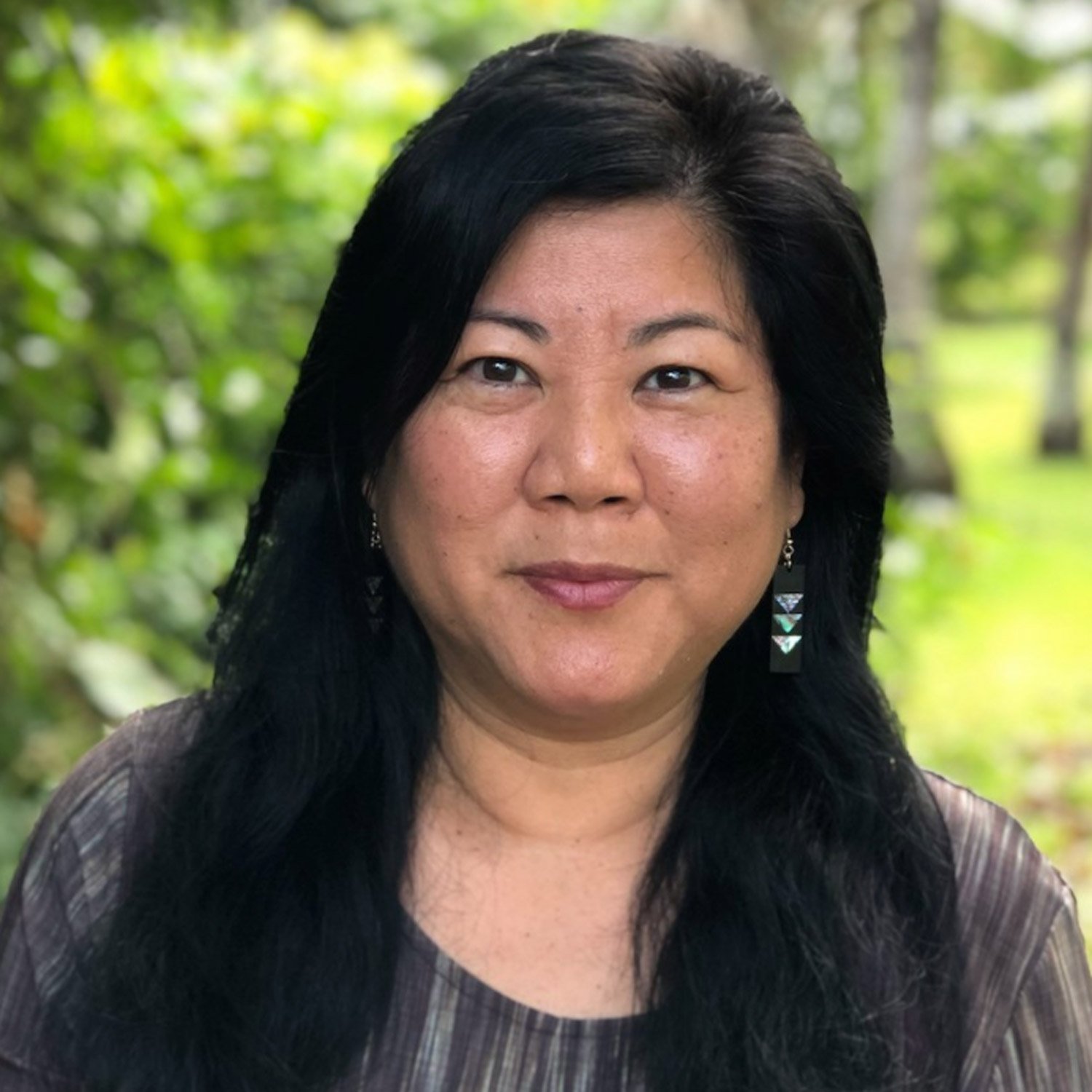
Sustainability, Climate Change, Renewable Energy, Politics, Activism, Biodiversity, Carbon Footprint, Wildlife, Regenerative Agriculture, Circular Economy, Extinction, Net-Zero · One Planet PodcastCandace Fujikane - Author of "Mapping Abundance for a Planetary Future"Candace Fujikane is an author and professor of English at the University of Hawaiʻi at Manoa, teaching aloha ʻāina and the protection of Hawaiʻi. Having grown up on the slopes of Maui’s Haleakalā, Candace has stood for the lands, waters, and political sovereignty of Hawaiʻi for over 20 years. Her newest book, Mapping Abundance for a Planetary Future, contends that “Indigenous ancestral knowledge provides a foundation for movements against climate change, one based on Indigenous economies of abundance as opposed to capitalist economies of scarcity.”“The struggle for a planetary future calls for a profound epist...
2022-05-1256 min
Environment, Climate Change, Renewable Energy, Regeneration, Sustainability, Nature, Politics, Circular Economy - One Planet Podcast 2021-2022Candace Fujikane · Author of "Mapping Abundance for a Planetary Future" · Professor of English · Univ. of Hawaiʻi at Manoa (55 mins)Candace Fujikane is an author and professor of English at the University of Hawaiʻi at Manoa, teaching aloha ʻāina and the protection of Hawaiʻi. Having grown up on the slopes of Maui’s Haleakalā, Candace has stood for the lands, waters, and political sovereignty of Hawaiʻi for over 20 years. Her newest book, Mapping Abundance for a Planetary Future, contends that “Indigenous ancestral knowledge provides a foundation for movements against climate change, one based on Indigenous economies of abundance as opposed to capitalist economies of scarcity.”“The struggle for a planetary future calls for a profound epist...
2022-05-1200 min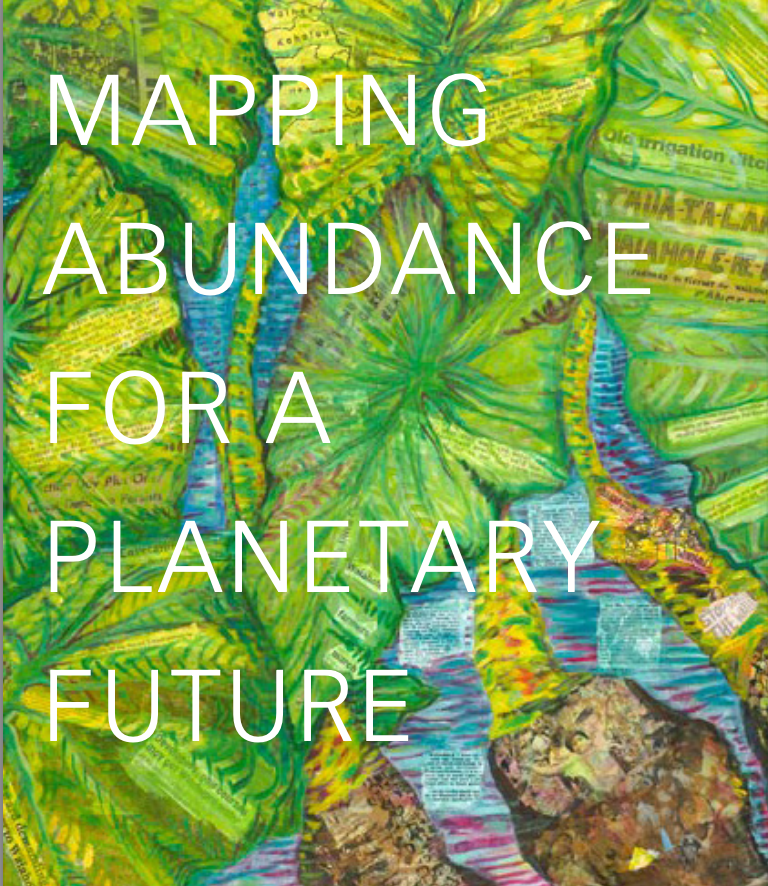
The Creative Process · Arts, Culture & Society: Books, Film, Music, TV, Art, Writing, Creativity, Education, Environment, Theatre, Dance, LGBTQ, Climate Change, Social Justice, Spirituality, Feminism, Tech, SustainabilityMapping Abundance for a Planetary Future with CANDACE FUJIKANE - Highlights“The struggle for a planetary future calls for a profound epistemological shift. Indigenous ancestral knowledges are now providing a foundation for our work against climate change, one based on what I refer to as Indigenous economies of abundance—as opposed to capitalist economies of scarcity. Rather than seeing climate change as apocalyptic, we can see that climate change is bringing about the demise of capital, making way for Indigenous lifeways that center familial relationships with the earth and elemental forms. Kānaka Maoli are restoring the worlds where their attunement to climatic change and their capacity for kilo adaptation, regen...
2022-05-1111 min
The Creative Process · Arts, Culture & Society: 2022-2023Mapping Abundance for a Planetary Future with CANDACE FUJIKANE - Highlights“The struggle for a planetary future calls for a profound epistemological shift. Indigenous ancestral knowledges are now providing a foundation for our work against climate change, one based on what I refer to as Indigenous economies of abundance—as opposed to capitalist economies of scarcity. Rather than seeing climate change as apocalyptic, we can see that climate change is bringing about the demise of capital, making way for Indigenous lifeways that center familial relationships with the earth and elemental forms. Kānaka Maoli are restoring the worlds where their attunement to climatic change and their capacity for kilo adaptation, regen...
2022-05-1100 min
The Creative Process · Arts, Culture & Society: 2022-2023CANDACE FUJIKANE - Author of Mapping Abundance for a Planetary Future - Prof. of English - Univ. of Hawaiʻi at ManoaCandace Fujikane is an author and professor of English at the University of Hawaiʻi at Manoa, teaching aloha ʻāina and the protection of Hawaiʻi. Having grown up on the slopes of Maui’s Haleakalā, Candace has stood for the lands, waters, and political sovereignty of Hawaiʻi for over 20 years. Her newest book, Mapping Abundance for a Planetary Future, contends that “Indigenous ancestral knowledge provides a foundation for movements against climate change, one based on Indigenous economies of abundance as opposed to capitalist economies of scarcity.”“The struggle for a planetary future calls for a profound epist...
2022-05-1100 min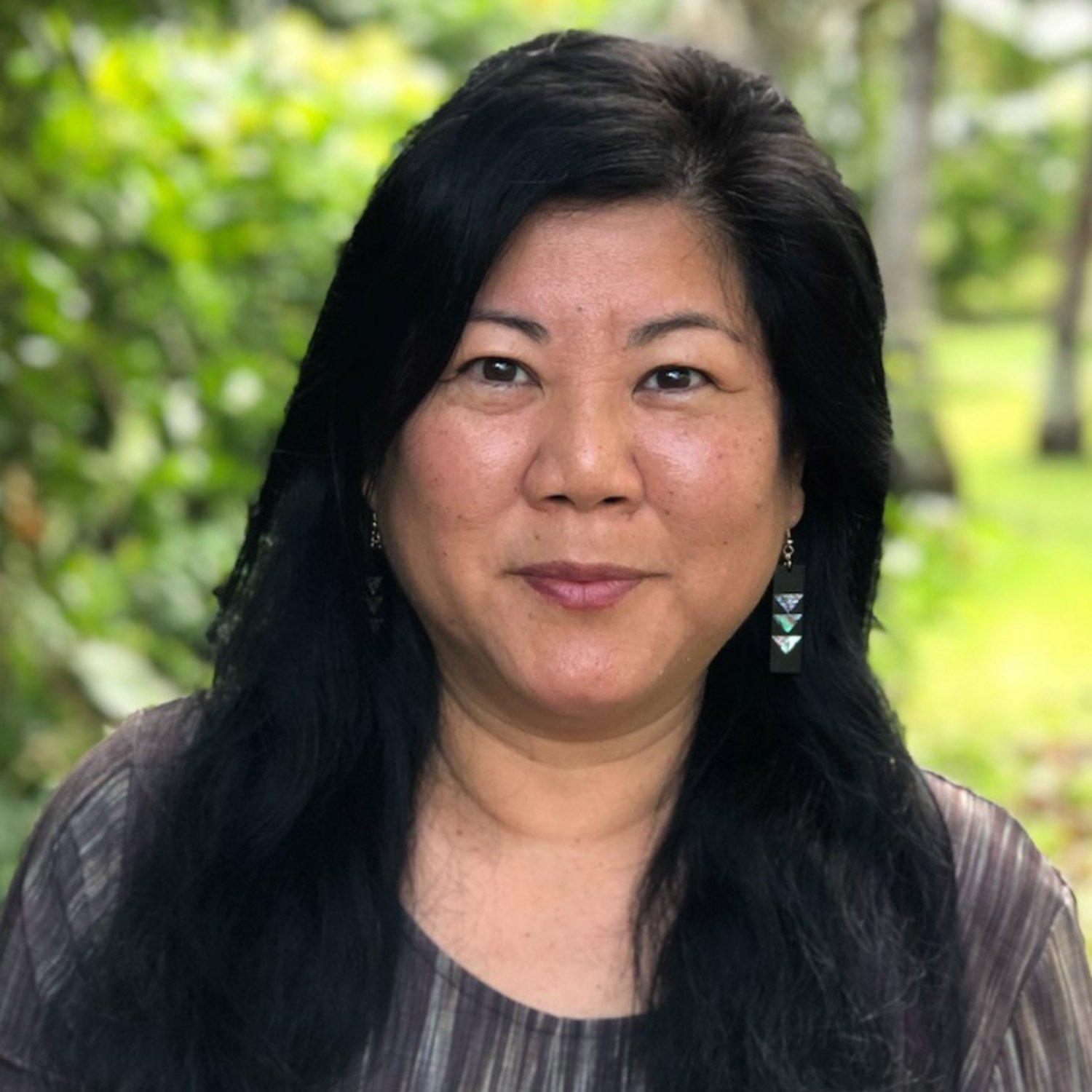
The Creative Process · Arts, Culture & Society: Books, Film, Music, TV, Art, Writing, Creativity, Education, Environment, Theatre, Dance, LGBTQ, Climate Change, Social Justice, Spirituality, Feminism, Tech, SustainabilityCANDACE FUJIKANE - Author of Mapping Abundance for a Planetary Future - Prof. of English - Univ. of Hawaiʻi at ManoaCandace Fujikane is an author and professor of English at the University of Hawaiʻi at Manoa, teaching aloha ʻāina and the protection of Hawaiʻi. Having grown up on the slopes of Maui’s Haleakalā, Candace has stood for the lands, waters, and political sovereignty of Hawaiʻi for over 20 years. Her newest book, Mapping Abundance for a Planetary Future, contends that “Indigenous ancestral knowledge provides a foundation for movements against climate change, one based on Indigenous economies of abundance as opposed to capitalist economies of scarcity.”“The struggle for a planetary future calls for a profound epist...
2022-05-1156 min
Spirituality & Mindfulness · The Creative Process: Spiritual Leaders, Mindfulness Experts, Great Thinkers, Authors, Elders, Artists Talk Faith & Religion(Highlights) Candace Fujikane · Author of "Mapping Abundance for a Planetary Future" · Professor of English · University of Hawaiʻi at Manoa“The struggle for a planetary future calls for a profound epistemological shift. Indigenous ancestral knowledges are now providing a foundation for our work against climate change, one based on what I refer to as Indigenous economies of abundance—as opposed to capitalist economies of scarcity. Rather than seeing climate change as apocalyptic, we can see that climate change is bringing about the demise of capital, making way for Indigenous lifeways that center familial relationships with the earth and elemental forms. Kānaka Maoli are restoring the worlds where their attunement to climatic change and their capacity for kilo adaptation, regen...
2022-05-1000 min
Spirituality & Mindfulness · The Creative Process: Spiritual Leaders, Mindfulness Experts, Great Thinkers, Authors, Elders, Artists Talk Faith & ReligionCandace Fujikane · Author of "Mapping Abundance for a Planetary Future" · Professor of English · Univ. of Hawaiʻi at Manoa (55 mins)Candace Fujikane is an author and professor of English at the University of Hawaiʻi at Manoa, teaching aloha ʻāina and the protection of Hawaiʻi. Having grown up on the slopes of Maui’s Haleakalā, Candace has stood for the lands, waters, and political sovereignty of Hawaiʻi for over 20 years. Her newest book, Mapping Abundance for a Planetary Future, contends that “Indigenous ancestral knowledge provides a foundation for movements against climate change, one based on Indigenous economies of abundance as opposed to capitalist economies of scarcity.”“The struggle for a planetary future calls for a profound epist...
2022-05-1000 min
Greenhouse Environmental Humanities Book TalksCandace Fujikane – Mapping Abundance for a Planetary FutureCandace Fujikane, Professor of English at the University of Hawai‘i, presented her book Mapping Abundance for a Planetary Future: Kanaka Maoli and Critical Settler Cartographies in Hawai’i (Duke University Press, 2021) in the Greenhouse environmental humanities book talk series on Monday, 8 November 2021.
In Mapping Abundance for a Planetary Future, Candace Fujikane contends that the practice of mapping abundance is a radical act in the face of settler capital’s fear of an abundance that feeds. Cartographies of capital enable the seizure of abundant lands by enclosing “wastelands” claimed to be underdeveloped. By contrast, Kanaka Maoli (Native Hawaiian) car...
2021-11-0855 min
Greenhouse Environmental Humanities Book TalksCandace Fujikane – Mapping Abundance for a Planetary FutureCandace Fujikane, Professor of English at the University of Hawai‘i, presented her book Mapping Abundance for a Planetary Future: Kanaka Maoli and Critical Settler Cartographies in Hawai’i (Duke University Press, 2021) in the Greenhouse environmental humanities book talk series on Monday, 8 November 2021.
In Mapping Abundance for a Planetary Future, Candace Fujikane contends that the practice of mapping abundance is a radical act in the face of settler capital’s fear of an abundance that feeds. Cartographies of capital enable the seizure of abundant lands by enclosing “wastelands” claimed to be underdeveloped. By contrast, Kanaka Maoli (Native Hawaiian) car...
2021-11-0855 min
The Deep DiveEpisode 76: Mapping Abundance for a Planetary Future: A Conversation w/ Prof. Candace FujikaneIn this conversation, Philip talks to Prof. Candace Fujikane the author of Mapping Abundance for a Planetary Future. In their conversation Philip and Candace discuss how maps are used in service to the colonial settler project, the implications for the movement for Hawaiian sovereignty and how abundance must be centered for a planetary future(s).
The Drop – The segment of the show where Philip and his guest share tasty morsels of intellectual goodness and creative musings.
Philip’s Drop:
All things Sade
Candace’s Drop:
A Nation Rising: Hawaiian Movements for Life...
2021-09-091h 04
Viernes de Pequeños CambiosLa Venta de El Yunque : Entrevista a Jaime Torres TorresHoy le damos la bienvenida al reportero, amante de la naturaleza, música, y bienestar social y podemos ver todo esto reflejado en su pagina, Prensa sin Censura, Jaime Torres Torres, con quien hablaremos hoy sobre la venta de El Yunque.En esta conversación cargada de información te enteras de cuántos pueblos toca El Yunque, las razones que dan paso a la venta de los recursos naturales y qué podemos hacer al respecto. No te la pierdas!
Viernes de Pequeños Cambios es traido a ti por Paper in Bloom
La misión de Vie...
2021-06-191h 08
treehugger podcastMapping Abundance with Candace FuijikaneCandace Fujikane leads us through Kanaka Maoli cartographies that articulates Indigenous ancestral knowledges via moʻolelo (historical stories), oli (chants), and mele (songs). Engaging in the art of kilo, observing laws of the natural order is based on longtime observation and recording in relationships with the almost half a million akua. The akua are the elemental forms, who guide the people in their daily lives and embody the lands, seas, and skies. Professor Fuijikane asserts, "abundance is expressed out of Kanaka Maoli restoration projects, as practitioners assert their capacity to determine their own decolonial futures…." Candace Fujikane is...
2021-06-0353 min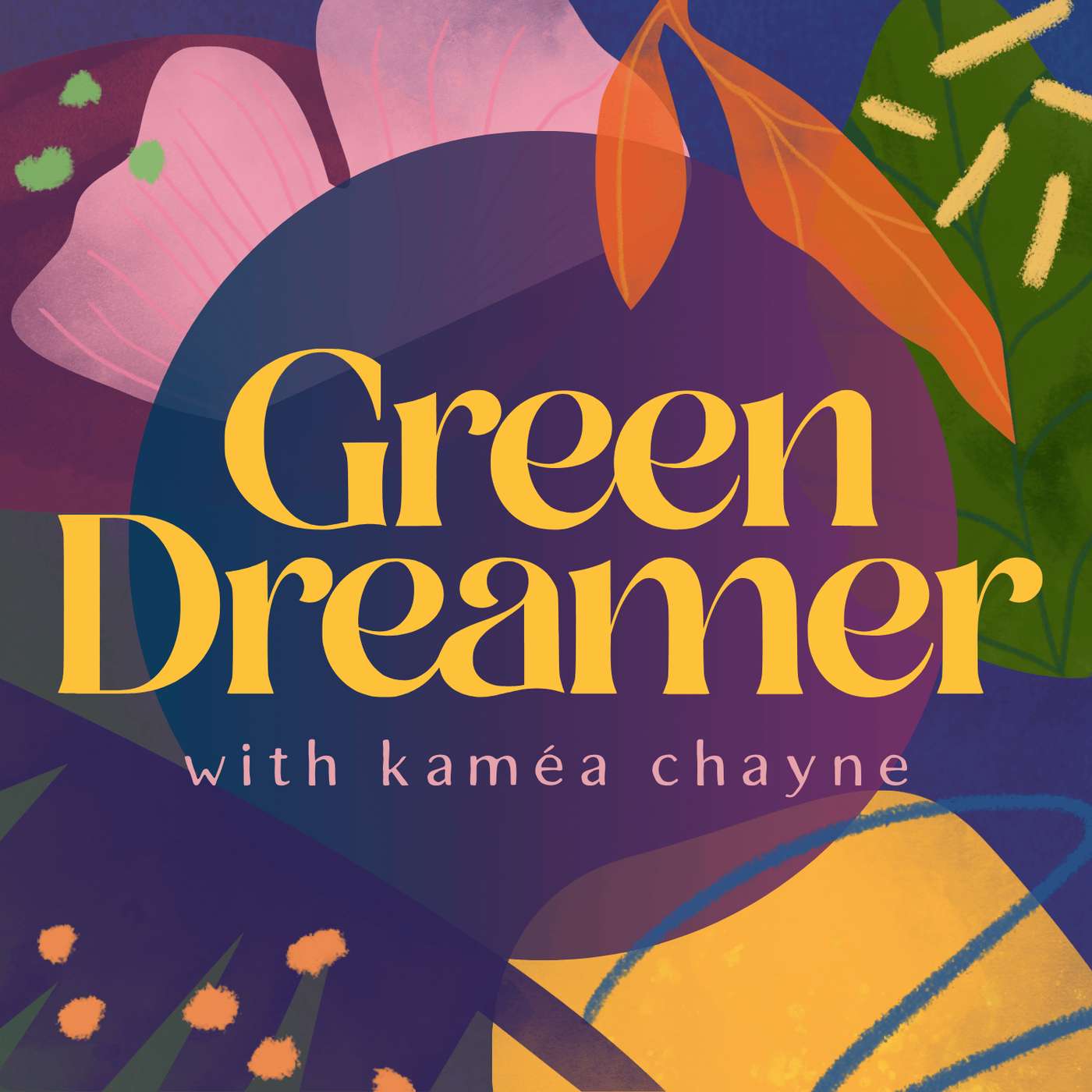
Green Dreamer: Seeding change towards collective healing, sustainability, regeneration311) Candace Fujikane: Mapping for abundance against cartographies of capitalHow is mapping for abundance an act of defiance against cartographies of capital and commodification? How might shifting away from a worldview of scarcity to one of abundance manifest greater societal, cultural, and systemic transformations? In this episode, we welcome Candace Fujikane, co-editor of a special issue of Amerasia Journal, Whose Vision? Asian Settler Colonialism in Hawaiʻi (2000) and Asian Settler Colonialism: From Local Governance to the Habits of Everyday Life in Hawaiʻi (2008). She is a Japanese settler aloha ʻāina, standing for lands and waters in Hawaiʻi by mapping the moʻolelo of places and mobili...
2021-06-0154 min
Green Dreamer: Seeding change towards collective healing, sustainability, regeneration311) Candace Fujikane: Mapping for abundance against cartographies of capitalHow is mapping for abundance an act of defiance against cartographies of capital and commodification? How might shifting away from a worldview of scarcity to one of abundance manifest greater societal, cultural, and systemic transformations? In this episode, we welcome Candace Fujikane, co-editor of a special issue of Amerasia Journal, Whose Vision? Asian Settler Colonialism in Hawaiʻi (2000) and Asian Settler Colonialism: From Local Governance to the Habits of Everyday Life in Hawaiʻi (2008). She is a Japanese settler aloha ʻāina, standing for lands and waters in Hawaiʻi by mapping the moʻolelo of places and mobili...
2021-06-0154 min
Kasamahan CoSeason 5 - Episode 10 Dean SaranillioProfessor, Dad, Friend, Brother, Grandson, His family is from Badian, Cebu and his great-grandparents left Cebu in 1919. His family is also Japanese, and his great-grandfather left Niigata in 1895. He grew up in Kahului, Maui, and is the youngest of four. He grew up in a working class background. He has been back to the Philippines -- Once to study at UP Diliman and another time to find family in Cebu. He ended up finding family and has got to be one of the most memorial experiences of his lifelihood. During this podcast episode, we talk about from his personal s...
2021-05-051h 00
New Books in Pacific StudiesCandace Fujikane, "Mapping Abundance for a Planetary Future: Kanaka Maoli and Critical Settler Cartography in Hawai'i" (Duke UP, 2021)In Mapping Abundance for a Planetary Future: Kanaka Maoli and Critical Settler Cartographies in Hawai'i (Duke University Press, 2021), Candace Fujikane draws upon Hawaiian stories about the land and water and their impact upon Native Hawai'ian struggles to argue that Native economies of abundance provide a foundation for collective work against climate change.Fujikane contends that the practice of mapping abundance is a radical act in the face of settler capital's fear of an abundance that feeds. Cartographies of capital enable the seizure of abundant lands by enclosing "wastelands" claimed to be underdeveloped. By contrast, Kanaka Maoli (Native Hawa...
2021-04-211h 02
New Books in Indigenous StudiesCandace Fujikane, "Mapping Abundance for a Planetary Future: Kanaka Maoli and Critical Settler Cartography in Hawai'i" (Duke UP, 2021)In Mapping Abundance for a Planetary Future: Kanaka Maoli and Critical Settler Cartographies in Hawai'i (Duke University Press, 2021), Candace Fujikane draws upon Hawaiian stories about the land and water and their impact upon Native Hawai'ian struggles to argue that Native economies of abundance provide a foundation for collective work against climate change.Fujikane contends that the practice of mapping abundance is a radical act in the face of settler capital's fear of an abundance that feeds. Cartographies of capital enable the seizure of abundant lands by enclosing "wastelands" claimed to be underdeveloped. By contrast, Kanaka Maoli (Native Hawa...
2021-04-211h 02
New Books in Asian American StudiesCandace Fujikane, "Mapping Abundance for a Planetary Future: Kanaka Maoli and Critical Settler Cartography in Hawai'i" (Duke UP, 2021)In Mapping Abundance for a Planetary Future: Kanaka Maoli and Critical Settler Cartographies in Hawai'i (Duke University Press, 2021), Candace Fujikane draws upon Hawaiian stories about the land and water and their impact upon Native Hawai'ian struggles to argue that Native economies of abundance provide a foundation for collective work against climate change.Fujikane contends that the practice of mapping abundance is a radical act in the face of settler capital's fear of an abundance that feeds. Cartographies of capital enable the seizure of abundant lands by enclosing "wastelands" claimed to be underdeveloped. By contrast, Kanaka Maoli (Native Hawa...
2021-04-211h 02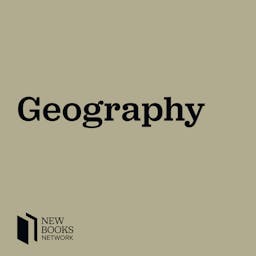
New Books in GeographyCandace Fujikane, "Mapping Abundance for a Planetary Future: Kanaka Maoli and Critical Settler Cartography in Hawai'i" (Duke UP, 2021)In Mapping Abundance for a Planetary Future: Kanaka Maoli and Critical Settler Cartographies in Hawai'i (Duke University Press, 2021), Candace Fujikane draws upon Hawaiian stories about the land and water and their impact upon Native Hawai'ian struggles to argue that Native economies of abundance provide a foundation for collective work against climate change.Fujikane contends that the practice of mapping abundance is a radical act in the face of settler capital's fear of an abundance that feeds. Cartographies of capital enable the seizure of abundant lands by enclosing "wastelands" claimed to be underdeveloped. By contrast, Kanaka Maoli (Native Hawa...
2021-04-211h 02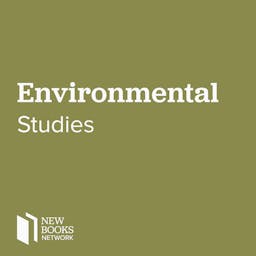
New Books in Environmental StudiesCandace Fujikane, "Mapping Abundance for a Planetary Future: Kanaka Maoli and Critical Settler Cartography in Hawai'i" (Duke UP, 2021)In Mapping Abundance for a Planetary Future: Kanaka Maoli and Critical Settler Cartographies in Hawai'i (Duke University Press, 2021), Candace Fujikane draws upon Hawaiian stories about the land and water and their impact upon Native Hawai'ian struggles to argue that Native economies of abundance provide a foundation for collective work against climate change.Fujikane contends that the practice of mapping abundance is a radical act in the face of settler capital's fear of an abundance that feeds. Cartographies of capital enable the seizure of abundant lands by enclosing "wastelands" claimed to be underdeveloped. By contrast, Kanaka Maoli (Native Hawa...
2021-04-211h 03